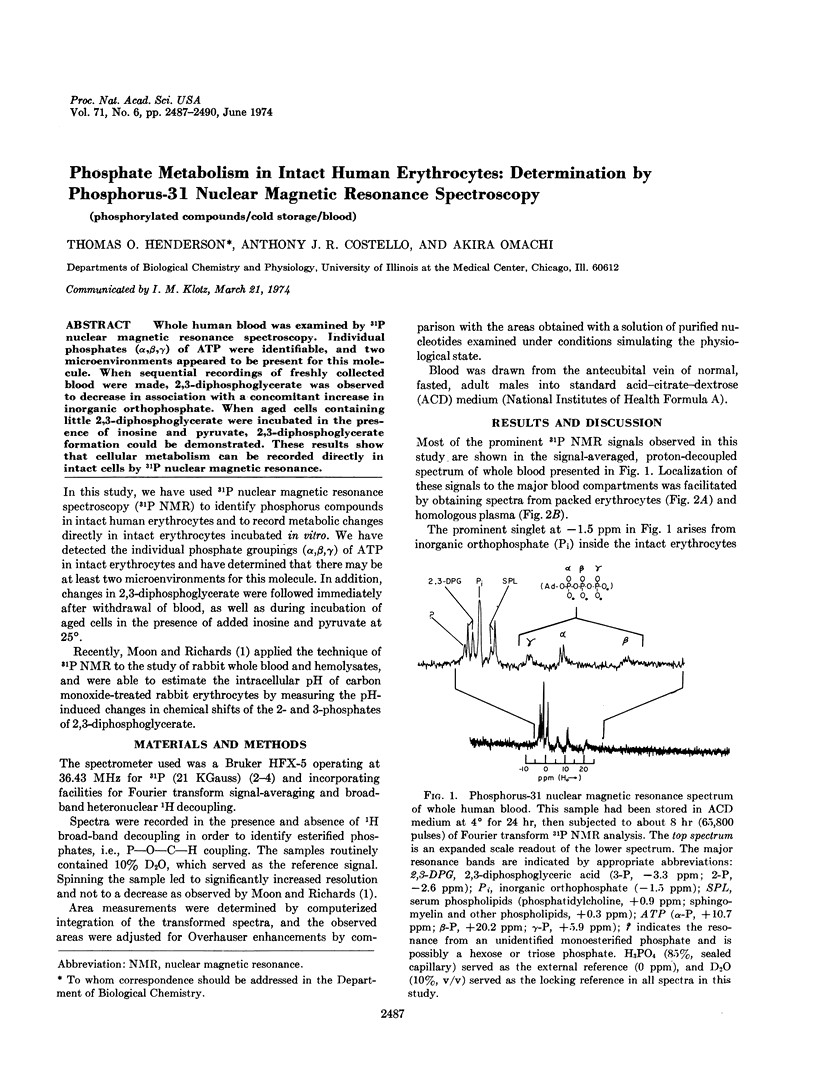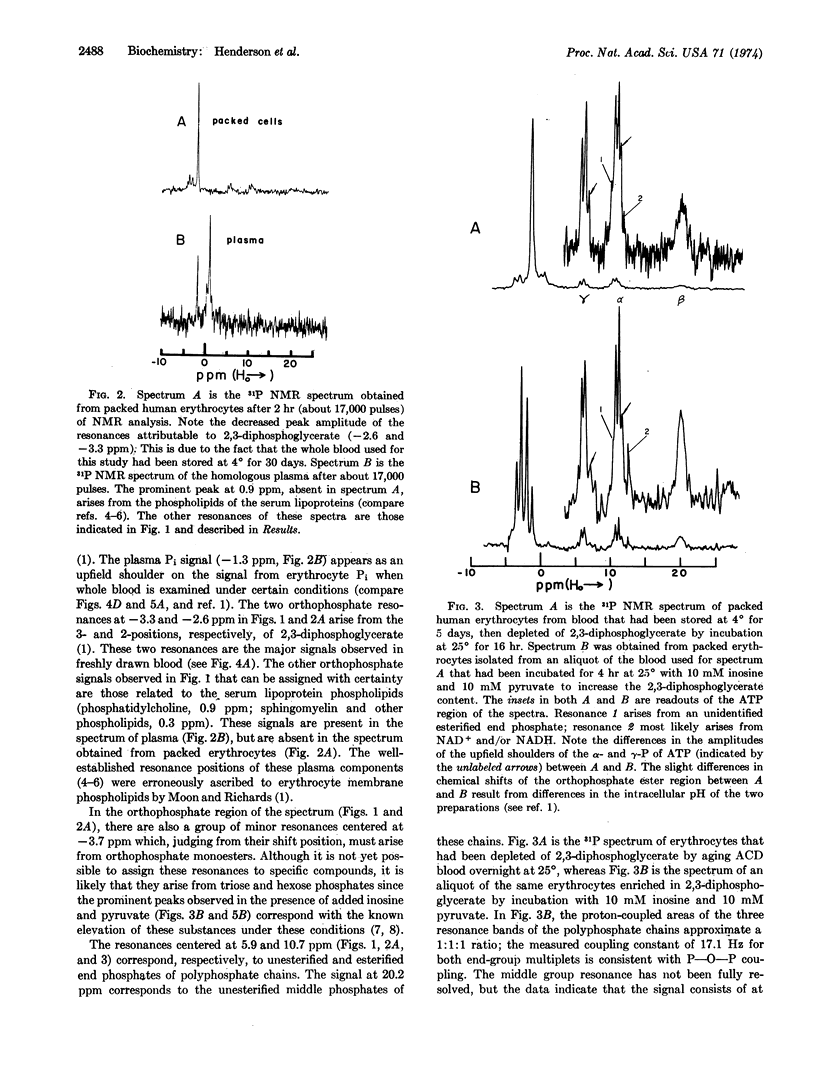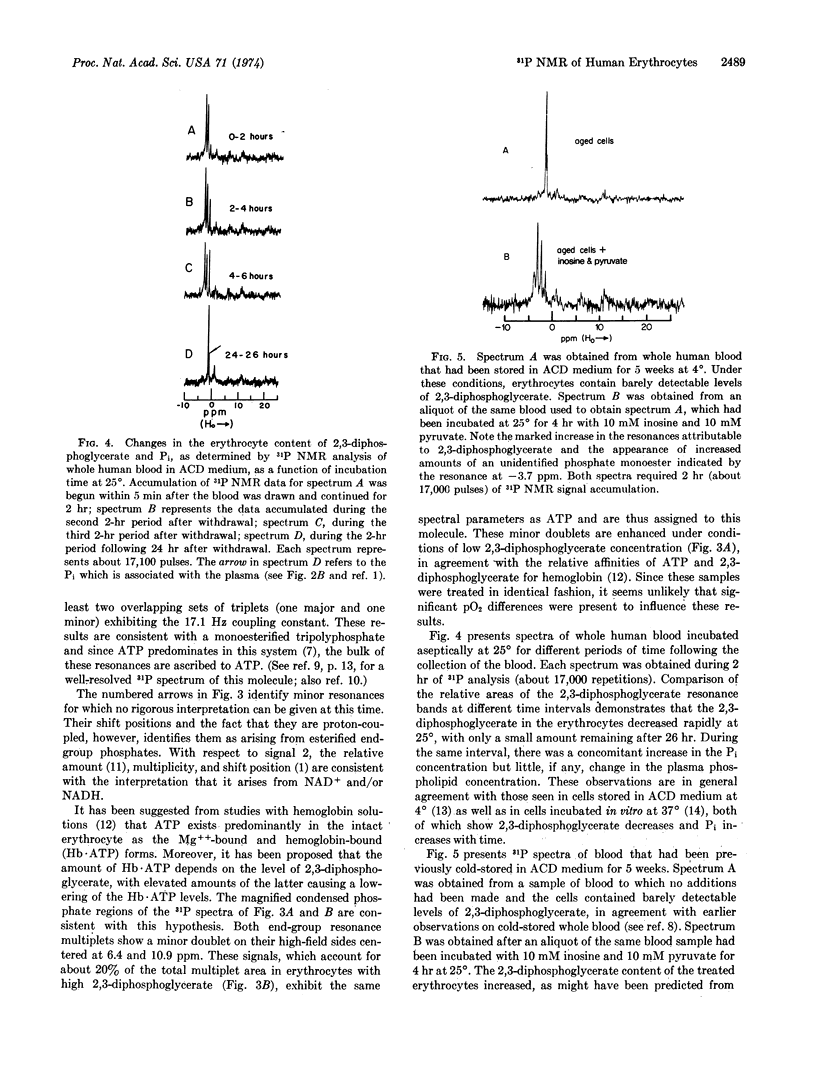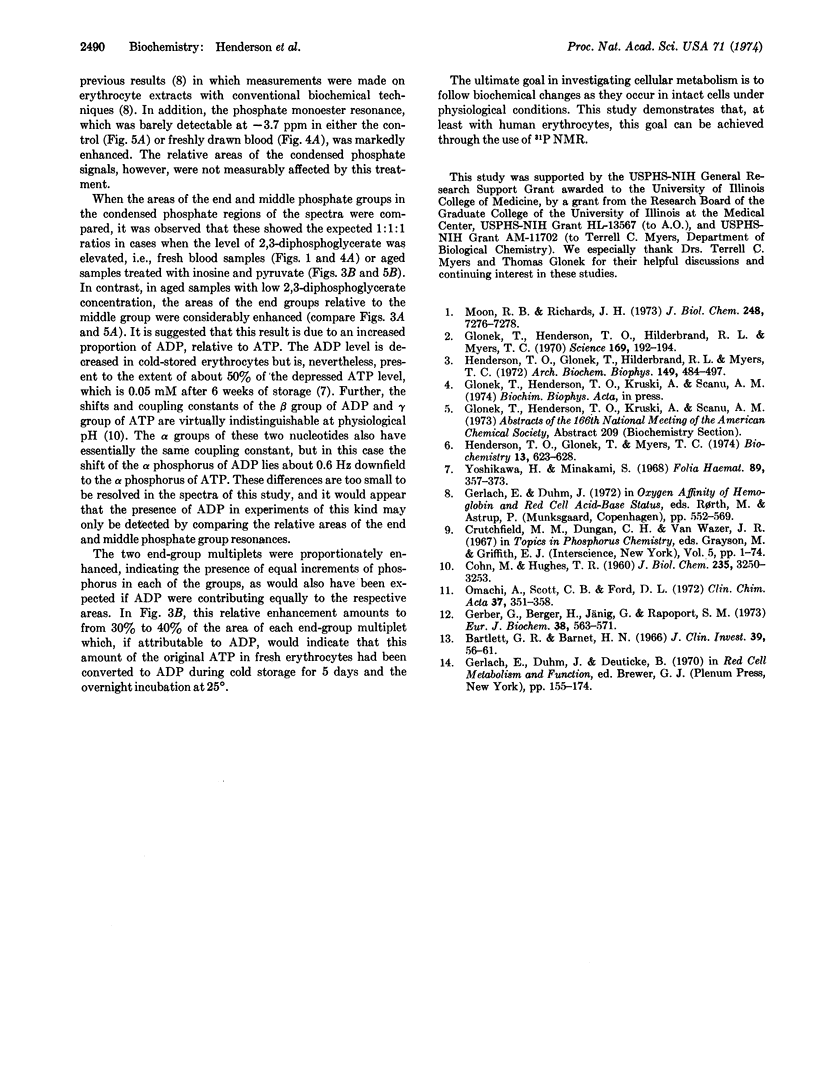Abstract
Whole human blood was examined by 31P nuclear magnetic resonance spectroscopy. Individual phosphates (α,β,γ) of ATP were identifiable, and two microenvironments appeared to be present for this molecule. When sequential recordings of freshly collected blood were made, 2,3-diphosphoglycerate was observed to decrease in association with a concomitant increase in inorganic orthophosphate. When aged cells containing little 2,3-diphosphoglycerate were incubated in the presence of inosine and pyruvate, 2,3-diphosphoglycerate formation could be demonstrated. These results show that cellular metabolism can be recorded directly in intact cells by 31P nuclear magnetic resonance.
Keywords: phosphorylated compounds, cold storage, blood
Full text
PDF



Selected References
These references are in PubMed. This may not be the complete list of references from this article.
- BARTLETT G. R., BARNET H. N. Changes in the phosphate compounds of the human red blood cell during blood bank storage. J Clin Invest. 1960 Jan;39:56–61. doi: 10.1172/JCI104026. [DOI] [PMC free article] [PubMed] [Google Scholar]
- COHN M., HUGHES T. R., Jr Phosphorus magnetic resonance spectra of adenosine di- and triphosphate. I. Effect of pH. J Biol Chem. 1960 Nov;235:3250–3253. [PubMed] [Google Scholar]
- Gerber G., Berger H., Jänig G. R., Rapoport S. M. Interaction of haemoglobin with ions. Quantitative description of the state of magnesium, adenosine 5'-triphosphate, 2,3-bisphosphoglycerate, and human haemoglobin under simulated intracellular conditions. Eur J Biochem. 1973 Oct 18;38(3):563–571. doi: 10.1111/j.1432-1033.1973.tb03091.x. [DOI] [PubMed] [Google Scholar]
- Glonek T., Henderson T. O., Hilderbrand R. L., Myers T. C. Biological phosphonates: determination by phosphorus-31 nuclear magnetic resonance. Science. 1970 Jul 10;169(3941):192–194. doi: 10.1126/science.169.3941.192. [DOI] [PubMed] [Google Scholar]
- Henderson T. O., Glonek T., Hilderbrand R. L., Myers T. C. Phosphorus-31 nuclear magnetic resonance studies of the phosphonate and phosphate composition of the sea anemone, Bunadosoma, sp. Arch Biochem Biophys. 1972 Apr;149(2):484–497. doi: 10.1016/0003-9861(72)90348-7. [DOI] [PubMed] [Google Scholar]
- Henderson T. O., Glonek T., Myers T. C. Phosphorus-31 nuclear magnetic resonance spectroscopy of phospholipids. Biochemistry. 1974 Jan 29;13(3):623–628. doi: 10.1021/bi00700a034. [DOI] [PubMed] [Google Scholar]
- Moon R. B., Richards J. H. Determination of intracellular pH by 31P magnetic resonance. J Biol Chem. 1973 Oct 25;248(20):7276–7278. [PubMed] [Google Scholar]
- Omachi A., Scott C. B., Ford D. L. Pyridine nucleotide metabolism in stored human erythrocytes. Clin Chim Acta. 1972 Mar;37:351–358. doi: 10.1016/0009-8981(72)90455-x. [DOI] [PubMed] [Google Scholar]
- Yoshikawa H., Minakami S. Regulation of glycolysis in human red cells. Folia Haematol Int Mag Klin Morphol Blutforsch. 1968;89(4):357–375. [PubMed] [Google Scholar]



